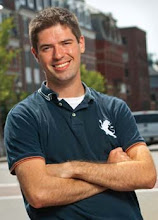We found them, once, on a ship of the damned, a barge haphazardly sailing the Rhine and Rhone and Danube, its cargo the ostracized. The structuralists and formalists and antinominalists and all their friends -- they found them in the cemeteries, the underground walkways, the peripheries.
The thing is these "they," the [insert your favorite euphemism e.g. 'forgotten,' 'subaltern,' 'peripheral,' 'outsiders'], are not on the periphery. But it's easy to overlook them when they escape the margins to which we exile; temporality, here, works with just as much strength as locality.
It's Thursday. Mid-morning sun in that unfamiliar brightness - "we" are, after all, typically ensconced in our schools and offices and secure worlds by now. It's downtown, the Main Street, that part of town that falls under the sway of the college students and bar-crawling patrons. The night is not as shadowed as once it was; the night offers no protection to the ostracized.
They're out, now. In the sun, they walk. In the shop windows, they stop and watch myriad proceedings. One makes fastball pitching motions, nothing in his hand, towards a dumpster, awaiting the metallic echo of a sound that's not yet fired.
I see two options. Either my thesis is correct - and temporality dictates the periphery, but the context changes, time enforces itself upon the shadow gestalt of centrism and all its enemies in different ways - or there's a more insidious breakdown of the system of peripheries and alienations, where those considered subaltern no longer hide, but are not equal before the law.
Take that to bear on whatever strain of current events you may like. As the unBridge quipped the other day, "You have infinite possibilities ahead of you."
I looked over at him and [mournfully? with sardonic foreknowledge of what would be the next words out of his mouth?] replied: "Because I'm white?"
He laughed. He nodded.

